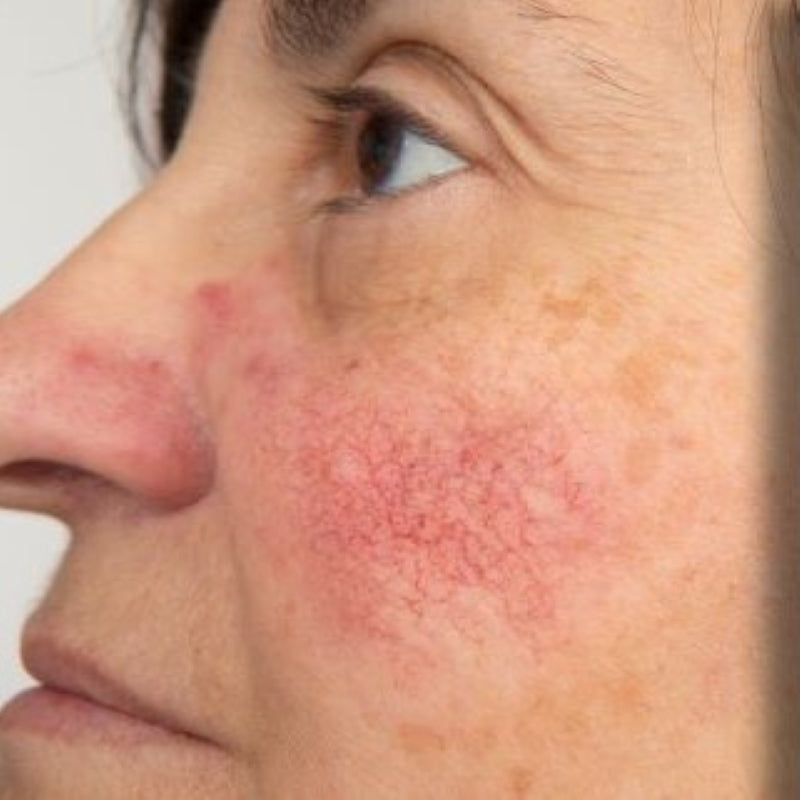
Lupus vs Rosacea
Lupus and rosacea are both skin conditions that can affect the appearance and health of the skin. While there are some similarities between the two, they are distinct conditions with different causes, symptoms, and treatments. In this blog post, we'll explore the key differences between lupus and rosacea.
Lupus
Lupus is an autoimmune disease that can affect various parts of the body, including the skin. When lupus affects the skin, it can cause a variety of symptoms, including:
- Butterfly rash: A rash that appears on the cheeks and nose and looks like a butterfly.
- Photosensitivity: An increased sensitivity to sunlight that can cause a rash or other skin reactions.
- Discoid lupus: A type of lupus that causes red, scaly patches on the skin that can lead to scarring.
- Mucosal ulcers: Sores in the mouth or nose that can be painful.
- Raynaud's phenomenon: A condition in which the fingers and toes turn white or blue in response to cold or stress.
Lupus can also cause other symptoms that affect the body, such as joint pain, fatigue, and fever. The cause of lupus is not fully understood, but it is thought to be a combination of genetic and environmental factors.
Rosacea
Rosacea is a chronic skin condition that causes redness, flushing, and bumps on the face. It typically affects the nose, cheeks, forehead, and chin, and can also cause eye irritation. The exact cause of rosacea is unknown, but it is thought to be related to a combination of genetic and environmental factors.
There are four subtypes of rosacea:
- Erythematotelangiectatic rosacea: This type of rosacea causes redness, flushing, and visible blood vessels.
- Papulopustular rosacea: This type of rosacea causes acne-like bumps and pustules on the skin.
- Phymatous rosacea: This type of rosacea causes thickening of the skin and enlargement of the nose.
- Ocular rosacea: This type of rosacea affects the eyes and can cause redness, dryness, and irritation.
Treatment for lupus and rosacea will vary depending on the specific symptoms and severity of the condition. It is important to consult with a healthcare professional for an accurate diagnosis and personalized treatment plan.


